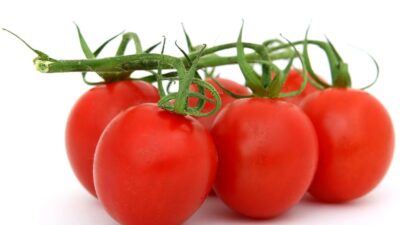Sustainable Cooking: Eco-Friendly Kitchen Tips for Every Home Chef
As the global conversation around climate change intensifies, many home chefs are looking for ways to make their cooking habits more sustainable. With small adjustments, you can significantly reduce your kitchen’s ecological footprint. Here are some practical eco-friendly kitchen tips for every home chef.
1. Choose Local and Seasonal Ingredients
One of the simplest ways to make your cooking more sustainable is by opting for local and seasonal produce. These ingredients require less transportation and energy to reach your kitchen, reducing your carbon footprint. Farmer’s markets are a great place to find fresh, seasonal options, and supporting local growers fosters your community’s economy.
2. Embrace Plant-Based Meals
Incorporating more plant-based meals into your diet can have a substantial positive impact on the environment. Animal agriculture contributes significantly to greenhouse gas emissions, water usage, and deforestation. Try to experiment with plant-based recipes, substituting meat with legumes, grains, and vegetables. Even one meatless day a week can make a difference!
3. Minimize Food Waste
Food waste is a major contributor to global greenhouse gas emissions. To combat this, plan your meals ahead, only buy what you need, and get creative with leftovers. Utilize parts of vegetables you might usually discard—like stems and skins—in stocks or soups. Composting food scraps not only helps reduce landfill waste but also enriches your garden’s soil.
4. Cook with Energy Efficiency in Mind
Cooking methods can greatly affect your kitchen’s energy consumption. Utilize energy-efficient appliances, such as pressure cookers or slow cookers, which not only save energy but also enhance flavors and nutrients. When using the stove, cover pots and pans to retain heat and cook at lower temperatures when possible to save electricity.
5. Invest in Reusable Kitchen Supplies
Consider swapping disposable items for reusable alternatives. For example, use cloth napkins instead of paper ones, glass jars for storage instead of plastic containers, and beeswax wraps instead of plastic wrap. These changes reduce plastic waste, which is crucial for the health of our oceans and landfills.
6. Grow Your Own Herbs and Vegetables
Creating a small herb or vegetable garden, even in a small space, can be both rewarding and sustainable. Growing your own produce not only cuts down on food miles but also allows you to control the use of pesticides and fertilizers. Even windowsills can be transformed into a herb garden with pots of basil, parsley, or rosemary.
7. Be Mindful of Packaging
When shopping, pay attention to packaging. Choose bulk foods when possible; they often come with less packaging and allow you to buy only what you need. Additionally, consider bringing your own reusable bags and containers to the store to reduce your reliance on plastic packaging.
8. Practice Smart Water Usage
Water is another precious resource often overlooked in the kitchen. Use pots with tight-fitting lids to cook faster and save water. When washing produce, use a bowl or basin to collect the water and reuse it for watering your plants. Additionally, try to thaw food in the refrigerator instead of under running water.
9. Educate Yourself and Share Knowledge
Staying informed about sustainable cooking practices can help you make better decisions. Numerous blogs, cookbooks, and documentaries delve into the topic, providing ideas and inspiration. Share your knowledge with friends and family to create a more inclusive community focused on sustainability.
10. Experiment with Fermentation and Preservation
Embrace methods like fermentation, pickling, and canning to prolong the shelf life of produce and reduce waste. These techniques not only preserve food but also add unique flavors and nutritional benefits to your meals. Plus, they are excellent ways to use up surplus ingredients.
Conclusion
Sustainable cooking is about making conscious choices that favor the environment while still allowing for delicious and enjoyable meals. By incorporating these eco-friendly tips into your kitchen routines, not only will you contribute to a healthier planet, but you will also inspire others to embrace sustainable practices. Remember, every small step counts, and together, we can make a collective impact on our environment. Happy cooking!



